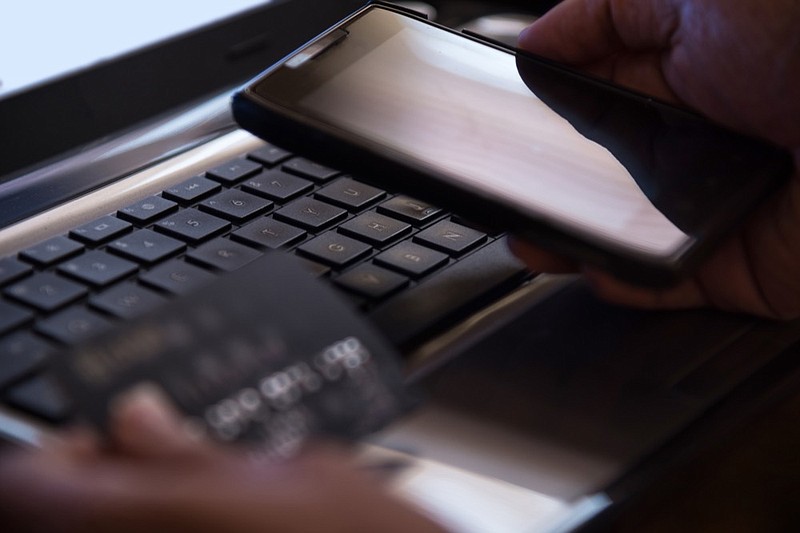The Better Business Bureau (BBB) is sometimes the first line of defense when a person believes he's been wronged by a shoddy service or serviceperson. To avoid as many scenarios as possible like this, the BBB and I agree on some very basic methods to stay one step ahead of scummy scammers.
First and foremost: NEVER give out your Social Security number unless it's absolutely necessary and you know the person to whom you're revealing; otherwise, it's the pathway to complete ruin. And, along this line, a troubled young woman whom I've recently befriended misplaced her purse. When she told me her SS card was included, I almost fainted right then and there. Thank goodness her search party found the bag and, by the time I finished with all the dreadful events that would befall her if Tammy Thief got a hold of her card, my friend swore she'd never carry it again. Whew!
Activate a credit freeze. Yes, I know I harangue and harass readers about this subject, but the H&H truly can't be enough these days. To instigate a credit freeze is the best way to protect ourselves from financial identity theft, because it restricts access to our credit files. No way on God's green earth can ID thieves apply for a new line of credit in any of our names. Pay nothing to freeze and then later, if required, thaw it temporarily before freezing again. No Robin/Robby Robbers around your personal info!
Use technology to block robocalls and other telemarketing calls. Nomorobo, a call blocking feature, can disconnect known telemarketers or scammers from your VoIP landline after one ring. Free for landlines, it costs $0 for cellphones. Go to www.nomorobo.com to begin. Even better to my way of thinking is the app Hiya, which seems to snag more robocalls before the scumbags get transferred to your ear.
Thanks to FaceBook, it's imperative to review our permissions and privacy settings on this and other social media. If you've signed into an app or website using your social media credentials or taken a fun quiz on social media (which I've done, unfortunately), you may have unwittingly given permission to third-party apps to access your personal information and contacts. On Facebook, go to "settings" and "apps and websites" to review.
Warn others and, also, stop fraudsters by reporting scams to BBB's Scamtracker, a crowd-sourced website where you can report if you've been contacted by a fraudster. Since reports are plotted on a map, it's also a smart use for Scamtracker to find out what's happening in your area. Moreover, the site reports help BBB educate the public with more in-depth reports via scam studies. Go to bbb.org/scamtracker for more information
Check out businesses and charities before forking over any money. Please make sure you're working with a reputable company or charity in order to save time, money and heartache later. Go to bbb.org where accredited businesses and charities have been evaluated by BBB; even better, these companies meet and promise to maintain the Standards of Trust or Standards for Charity Accountability.
Use secure payment methods. The first font of information instructs us to avoid at all costs any payment with a gift card or a money wire transfer, such as Money Gram or Western Union. Obviously, these methods are irrevocable, and you'll be out the amount you "paid" to Sammy Scammer. As I've cautioned many times over the years, always pay with a credit card (I like Paypal) as the credit card company will dispute the charge for you and, if it's not legit, you'll be recompensed. Anyone who claims to be from the IRS, Social Security office, a debt collector, or anyone else who tries to frighten you with a dunning debt to be paid only through the gift card or wire transfer is pretty much always a swindler.
Use a unique and complex password for every online account. Once again, I've urged this step in the past. Because baddies are so darn smart, it behooves us to be one step ahead to avoid being hacked. Forget names of family members, birthdates, schools attended, and so forth; instead consider a passphrase - a long password made up of from a collection of multiple words, making them both easier to type and remember.
Use your cellphone for more than talking or texting. Enable multi-factor authentication, which is when the user is granted access to an online account only after you've successfully provided two or more pieces of evidence, such as your password and a unique code generated by your smartphone. Therefore, if hackers steal our username and password, they still can't access our account. Just today, I forgot my password to a company from which I obtain consumer info; however, because I requested this two-part type of authentication, the company sent the second code to my cellphone. Of course, this then allowed my access to the online site, compliments of the verification.
Scrutinize all existing financial accounts. I used to advise folks to carefully monitor the end-of-the-month statements (still a good idea), but these days it's imperative we take it a step further. Sign up for online access to daily review financial accounts. Additionally, ask for their free text message alerts to notify you of activity, remind you when payments are due, and the like.
File your taxes early. One common fraud during tax season involves identity theft, as well as banking your own precious tax refund. Scammers try to submit a return in your name and have the payment come to them. Beat these criminal creeps and submit your taxes early.
Tax Tip: Victims of hurricanes, wildfires, or major floods might benefit from tax breaks revived last December. These include employer credits and waivers for early withdrawal from retirement plans. A blessing for sure.
Contact Ellen Phillips at consumerwatch@timesfreepress.com.

